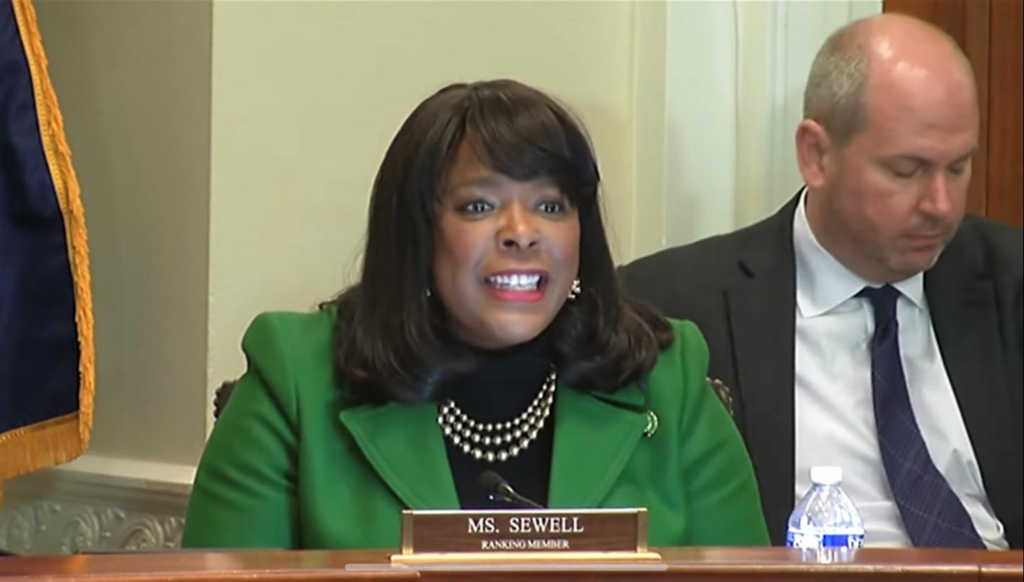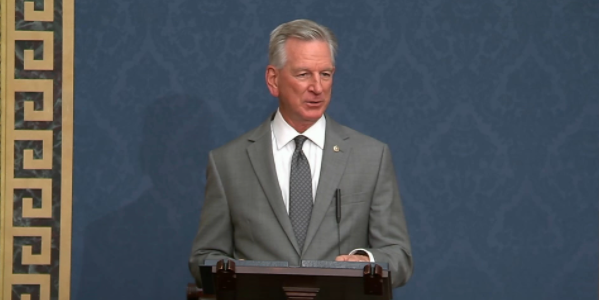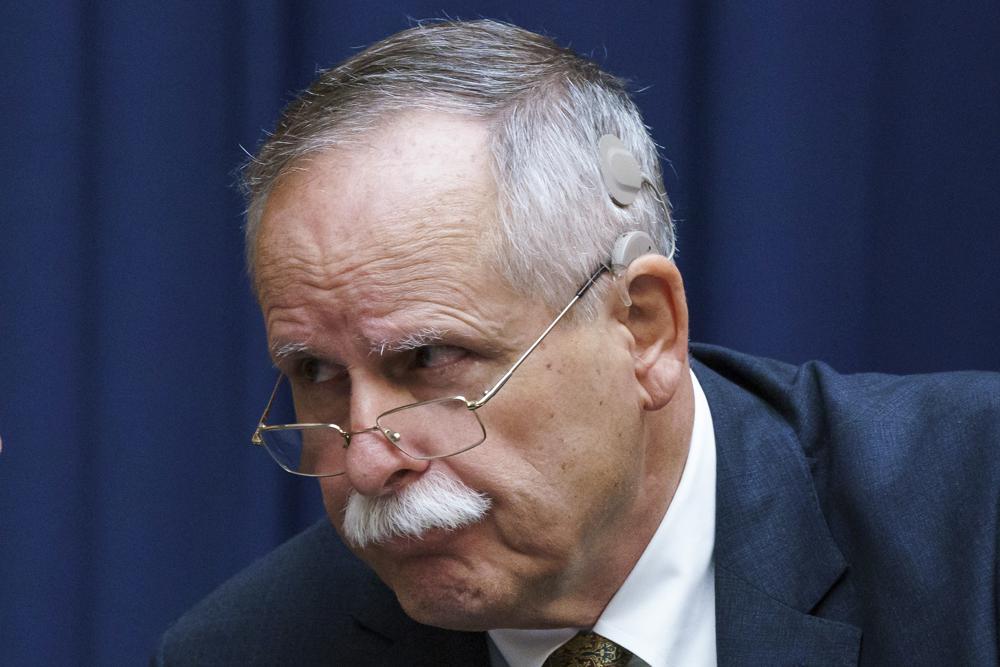Reps. Terri Sewell and Adrian Smith introduce bipartisan legislation to protect access to home health care services

Congressmembers Terri Sewell (D-AL07) and Adrian Smith (R-Nebraska) introduced the Preserving Access to Home Health Act of 2023. This bipartisan legislation would help preserve access to home health services for seniors and Americans with disabilities by preventing proposed cuts to home health payment rates from taking effect. “Home health services are a lifeline for so many Alabama seniors and people with disabilities, allowing patients to receive the treatment they need in the comfort of their own homes,” said Rep. Sewell. “I am very concerned about the impact that proposed cuts to Medicare’s home health program would have on these patients and their families. It is imperative that we prevent such cuts from taking effect, which is why I’m introducing the Preserving Access to Home Health Act in the House of Representatives. I want to thank Rep. Smith for his collaboration in this bipartisan effort, and I urge my colleagues to join us.” “Home health can lower the cost of care for patients and help hospitals to safely transition patients back to home living,” said Rep. Smith. “I have serious concerns these planned cuts to Medicare would result in worse outcomes for seniors and higher costs burdens in the long run. This bill would halt the counterproductive payment cuts and increase transparency in Medicare payment policy calculations. I thank my Senate colleagues and Rep. Sewell for their collaboration on this bill.” Approximately 3.5 million Medicare beneficiaries receive home health care services. This allows them to be treated in the cost-effective setting they prefer most—their homes. Home health services are a lifeline for seniors, people with disabilities, and those with limited mobility, and it became even more essential during the COVID-19 public health emergency. In June, Medicare announced plans to implement 9.36% cuts to its home healthcare program starting in 2024. This follows a 3.9% cut that began going into effect in 2023. These new cuts could total up to $20 billion over the next ten years, making it harder for patients to leave the hospital and go home with care that helps them recover and rehabilitate. The Preserving Access to Home Health Act would address the deep cuts made to home health that began this year and will continue until at least 2028. The legislation: · Restricts CMS from making any cuts to home health. · Requires MedPAC, which advises Congress on payment policy, to gain a full understanding of the economics of the home healthcare system, including how the Medicare program, the Medicaid program, and the Medicare Advantage program all contribute to a system. Joanne Cunningham is the CEO of the Partnership for Quality Home Healthcare. “Patients leaving the hospital need a smooth transition home, but are finding it increasingly difficult to find Medicare home health providers, signaling an immediate need for Congress to intervene and block Medicare from making such strident cuts to home health again this year,” said CEO Cunningham. “Data suggest that Medicare’s continued cuts to home health are restricting patient access to the safest and lowest-cost care setting following a hospital stay.” William A. Dombi is the President of the National Association for Home Care & Hospice. “The Medicare home health community strongly supports this legislation and thanks Representatives Sewell and Smith for their leadership on a Medicare issue that truly threatens access to care for the more than 3 million beneficiaries who rely on this care,” said President Dombi. “The home health community calls on Congress to ensure the stability that patients and providers urgently need. Since Medicare has again proposed deep cuts to home health in 2024, Congress must act to protect the care their constituents prefer and want.” Barbara Jacobsmeyer is the President and Chief Executive Officer of Enhabit Home Health & Hospice. “We commend Congresswoman Sewell for her commitment to home health and for leading this bipartisan legislation to help ensure Medicare’s invaluable home health care services are available when patients need them most,” said President Jacobsmeyer. “Congresswoman Sewell has been a true champion for home health issues during her time in Congress, and she understands how home health helps patients and families transition from hospital to home with compassionate, patient-centered care. Whether patients are recovering from surgery or managing a chronic illness or recent injury, Medicare home health is an essential part of the care continuum. We are grateful for the support from the Congresswoman and look forward to working with others in Congress to help protect Medicare’s home health benefit.” Senators Debbie Stabenow (D-Michigan) and Susan Collins (R-Maine) introduced companion legislation in the U.S. Senate on June 22. The Centers for Medicare and Medicaid Services (CMS) says that home health agency payments have exceeded projections every year since 2020 when it implemented a new home health payment system, the Patient Driven Groupings Model (PDGM). CMS sets home health payment and operational rules annually. The agency says it made the cuts to comply with a federal budget-neutrality mandate. Sewell is in her Seventh term representing Alabama’s Seventh Congressional District. To connect with the author of this story or to comment, email brandonmreporter@gmail.com.
Katie Britt cosponsors bipartisan bill to suspend the tariff on baby formula

U.S. Senator Katie Britt recently joined U.S. Senators Mike Lee (R-Utah), Bob Menendez (D-New Jersey), and Congressmen Adrian Smith (R-Nebraska) and Don Beyer (D-Virginia) to introduce the Formula 3.0 Act, legislation that would permanently suspend tariffs on baby formula from certain nations, bolstering continued access and affordability for American families. In 2022, families across the U.S. struggled to find formula to feed their infants after the Food and Drug Administration (FDA) temporarily shut down one of the country’s two formula producers. Amid the dire shortages, Congress passed legislation to temporarily suspend tariffs on imported baby formula from allied countries, bringing much-needed supply into the marketplace. The tariff suspensions expired in January 2023. With the potential of another possible shortage looming and rising prices, the Formula 3.0 Act would reinstate these tariff suspensions and make them permanent, helping to ensure that parents always have access to affordable baby formula that meets the FDA’s standards. “As a mom of two, I know firsthand how critical it is to be able to find formula for your baby,” said Sen. Katie Britt. “During the formula shortage last year, too many families were forced to confront the unthinkable, often desperately searching and coming up empty-handed. Permanently waiving these tariffs on allied countries gives parents greater access to formula. I’m proud to join my colleagues in bringing forward this bipartisan legislation that would ensure American families are able to provide their children with critical, life-sustaining nutrition.” “The welfare of our families, especially our infants, is of utmost importance. The formula shortage has highlighted the need for long-term solutions that promote accessibility and affordability,” Sen. Lee said. “With the FORMULA 3.0 Act, we take a significant step towards permanently eliminating trade barriers and ensuring a stable supply of infant formula for families across the nation.” “I’m proud to be co-leading this bipartisan effort to permanently waive tariffs on infant formula, which will lower prices and ensure we can protect infants from risks associated with current or future supply shortages,” said Sen. Menendez. “We have a responsibility to care for our families and children, and this common-sense solution will do just that.” Rep. Smith is the Chairman of the Ways and Means Trade Subcommittee. “The baby formula crisis put an additional spotlight on the serious supply chain challenges we face,” said Rep. Smith. “Congress immediately came together in a bipartisan way to waive tariffs on safe, FDA-approved formula, and it alleviated some of the pressures families faced when searching for formula. Now that those tariffs have returned, the availability of formula has become strained once again. That’s why we are working in a bipartisan, bicameral way to permanently lift barriers to safely import formula and give families more options and access to the formula they need.” “The fragility of the domestic infant formula market was put into stark relief last year when a problem at just one company’s facility led to a drastic supply shortage and massive price increases for parents nationwide,” said Rep. Beyer. “Due to high tariffs and other protectionist obstacles preventing high-quality infant formula imports from the global market, parents with small children were left scrambling to find affordable alternatives. With the expiration of temporary emergency measures designed to ease the shortage, the market remains extremely vulnerable to another supply shock. This bill would permanently eliminate trade barriers to encourage the import of FDA-compliant infant formula, bringing prices down for parents in the near term and staving off a potential future crisis.” The tariffs were designed to encourage domestic manufacture of baby formula, but with only two companies in that space domestically, the tariff effectively drives the price up for imported baby formula. Katie Britt was elected to the Senate in 2022. To connect with the author of this story or to comment, email brandonmreporter@gmail.com.
Tommy Tuberville supports expanding school choice opportunities during National School Choice Week

As National School Choice Week comes to a close, U.S. Senator Tommy Tuberville joined U.S. Senator Bill Cassidy and U.S. Representative Adrian Smith to introduce the Educational Choice for Children Act to expand educational opportunities for students by providing a donation incentive for individuals and businesses who fund scholarships for public and private K-12 education expenses. “There is no better cause than creating educational opportunities for our next generation of leaders,” Tuberville said in a press release. “Incentivizing greater investment in school choice will empower parents and students to make the decision best for them. I’m proud to support this legislation to ensure our students can achieve the brightest future possible.” “Parents deserve the right to make the best educational decision for their child, regardless of income,” said Sen. Cassidy. “Our bill empowers families to pick the school that best fits their children’s needs.” U.S. Senator Katie Britt also signed on as a co-sponsor of the legislation. “This National School Choice Week, let’s recommit to ensuring that every single child across Alabama and our nation has the opportunity to unlock the American Dream through a high-quality education,” said Sen. Britt earlier this week in support of expanded school choice. “No child’s zip code should determine their destiny. School choice empowers families with the freedom to make important decisions to help their children achieve their full potential and secure a bright future.” The Educational Choice for Children Act would: · Provide $10 billion in annual tax credits to be made available to taxpayers. Allotment of these credits to individuals would be administered by the Treasury Department. · Use a limited government approach with respect to federalism, thus avoiding mandates on states, localities, and school districts. · Include provisions that govern Scholarship Granting Organizations (SGOs), as SGOs are given the ability to determine the individual amount of scholarship awards. Numerous school choice advocacy groups endorsed the legislation, including the Invest in Education Coalition, American Federation for Children, U.S. Conference of Catholic Bishops, Heritage Action, Home School Legal Defense Association, Agudath Israel, Orthodox Union, Association of Christian Schools International, CAPE, Excel in Education, and former U.S. Secretary of Education Betsy DeVos. According to the Invest in Education Coalition, 49 million American children are currently in public schools. Only three percent of those children have a choice program in place so they can opt out of state-controlled education. Tuberville spent over forty years in education as a coach and teacher. Tuberville has been an outspoken advocate for expanding school choice opportunities. He is serving his first term as a U.S. Senator after unseating incumbent Doug Jones in the 2020 general election. To connect with the author of this story, or to comment, email brandonmreporter@gmail.com.
Donald Trump’s clout factors into U.S. House races in West Virginia, Nebraska

Roads, bridges, and former President Donald Trump are on West Virginia and Nebraska voters’ minds as they choose congressional candidates in Tuesday’s Republican primary elections. Two incumbent GOP congressmen who have taken dramatically different approaches to their time in office are facing off in West Virginia’s 2nd Congressional District, one of the most-watched U.S. House primaries on the day’s ballot. Reps. David McKinley and Trump-backed Alex Mooney were pitted against each other after West Virginia lost a congressional seat based on the results of the 2020 U.S. census. Throughout West Virginia on Tuesday, voters were heading to polling places at schools, churches, and public libraries. Susan Smith, a small business owner in Valley Grove, West Virginia, voted for Mooney at a local elementary school Tuesday morning. She lives in McKinley’s former district and said she always voted for him in the past. But not in this election. “When Mr. McKinley started voting with the Democrats and the current administration, that’s when things changed,” said Smith, who cited McKinley’s vote for President Joe Biden’s infrastructure bill and the January 6 commission. “I’m sorry to be losing a congressman, but we cannot have a Republican congressman voting with the Democrats. West Virginia did not need the money from this un-infrastructure bill.” Lowell Moore, a retired highways worker and county commissioner in rural Tucker County, said the choice was clear to support McKinley. He said he’s already seeing the benefit of federal infrastructure money in work being done to complete Corridor H, the last remaining section of the Appalachian Development Highway System in West Virginia. Moore said completing Corridor H will cut the response time for emergency services in half in Tucker County, which does not have a hospital and where first responders now have to travel on winding mountain roads. “The people he represents needed this so bad,” Moore said. “I’m a Republican, and I commend him for reaching across the aisle. It shouldn’t be about making the political decision — it should be about making the right decision.” West Virginia’s election is the first of five primaries in which two incumbent U.S. House members will face off. It will be followed by similar contests in Georgia and Michigan and in two Illinois districts. The primary comes on the heels of a victory by Trump-endorsed conservative JD Vance, author of the bestselling memoir “Hillbilly Elegy,” who defeated six other candidates to win the Ohio Republican primary for U.S. Senate last week. The West Virginia contest will once again test the former president’s clout when his own name isn’t on the ballot. Nebraska voters will nominate candidates on Tuesday to fill the seat abandoned by U.S. Rep. Jeff Fortenberry, a Republican who resigned from office and ended his reelection bid after he was convicted of lying to federal authorities about an illegal campaign contribution. Fortenberry’s name will still appear on the ballot for the 1st Congressional District because he withdrew after a deadline to certify the ballot, but Sen. Mike Flood, a former speaker of the Nebraska Legislature, appears to have the advantage over five other Republican candidates. Voters will also pick nominees for Nebraska’s 2nd Congressional District in the Omaha area. Three-term Republican Rep. Don Bacon faces a long-shot challenge from Steve Kuehl, an Omaha consultant who got a shoutout from Trump when the former president visited earlier this month. Trump blasted Bacon as a “bad guy” during a recent rally in the state and had criticized him previously for his support of a federal infrastructure bill that most GOP lawmakers opposed. Bacon also has been mildly critical of Trump in the past, saying the former president bore some responsibility for the January 6 riot at the U.S. Capitol. Trump stopped far short of officially endorsing Kuehl, however, saying: “I think Steve will do well. Good luck, Steve, whoever the hell you are.” Democrats in Nebraska will nominate either state Sen. Tony Vargas of Omaha or Alisha Shelton, an Omaha mental health therapist, to challenge Bacon in the 2nd, the state’s only competitive district. In the rural, geographically vast 3rd Congressional District, Republican U.S. Rep. Adrian Smith faces a challenger but is expected to win his party’s nomination. Two Democrats are vying for their party’s nomination within the district, which is overwhelmingly Republican. In West Virginia, incumbent Rep. Carol Miller is expected to hold her seat in the 1st Congressional District against four Republican challengers. In the state’s 2nd Congressional District, where McKinley and Mooney are battling each other for the GOP nomination, openly gay former Morgantown city councilor Barry Wendell is competing against security operations manager Angela Dwyer in the Democratic primary. Mooney has attacked McKinley for voting with 12 other House Republicans in favor of Biden’s $1.2 trillion infrastructure bill. Trump, who won every single county in West Virginia in two presidential elections and said Republicans who voted for the infrastructure bill should be “ashamed of themselves,” endorsed Mooney on the same day Biden signed the infrastructure law. Rep. David McKinley, a civil engineer by trade, received endorsements and praise from Democratic U.S. Sen. Joe Manchin and GOP Gov. Jim Justice over his infrastructure vote. He said it was time to put party politics aside to meet the needs of his constituents. “This wasn’t for Joe Biden — this was to help West Virginia,” he told The Associated Press. Republished with the permission of The Associated Press.


